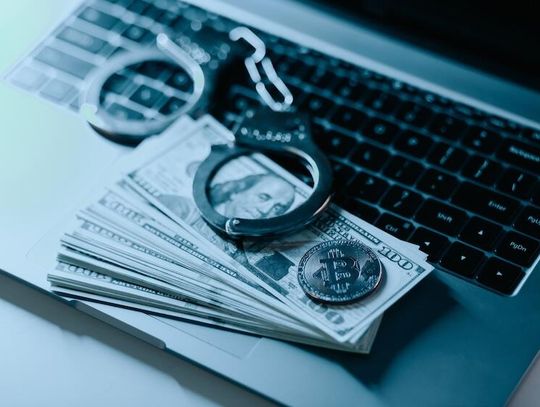Q: Who is eligible to vote in the Nov. 8 General Election?
A: All eligible voters in the City of Chicago, including those who need to use Election Day registration
to register, to file a change of address, or to file a name change. To register you must:
- be a U.S. citizen, and
- be born on or before November 8, 1998, and
- live in your precinct at least 30 days before the election, and
- not claim the right to vote elsewhere; and
- not be in prison/jail serving time for a conviction. (Note: Ex-convicts who have completed their
sentences and who meet all other requirements listed above are eligible to register and vote in
Illinois.)
Visit www.chicagoelections.com/info to check your registration status or to find the precinct polling
place to use Election Day Registration if you are not currently registered at that address. If you are
NOT registered or if you moved since you last registered, do not include your last name.
Q: What offices are on the ballots on Nov. 8?
A: Click here to see a list of offices on the ballots and lists of candidates.
- President and Vice President of the United States
- U.S. Senator
- State Comptroller (Vacancy - 2-year unexpired term)
- Representatives in Congress (all districts)
- State Senators (Districts 1, 2, 3, 5, 7, 8, 10, 11, 13, 14, 16, 17, 20 and 28)
- State Representatives (all districts)
- Commissioners of the Metropolitan Water Reclamation District (elect three to 6-year terms and
one to an unexpired 2-year term)
- Cook County Circuit Court Clerk
- Cook County State's Attorney
- Cook County Recorder of Deeds
- Board of Review (Tax Appeals) Commissioners: District 1 for four-year term; District 2 for twoyear
term
- Appellate, Circuit and Subcircuit Judges to fill vacancies
- Yes/No questions on whether to allow previously appointed or elected Judges to remain on the
bench.
- A binding statewide referendum on whether to amend the Illinois Constitution to ensure
transportation funds are not used for other purposes.
- A binding referendum in certain South and West Side precincts on whether to create a new taxing
district to provide mental-health services.
Q: How do I write-in a candidate whose name is NOT listed on the ballot?
A: On the paper ballots, write-in the name where indicated and connect the tail and head of the
arrow next to that space. On the touch screen, touch “write-in” and a keyboard will appear to type in
the write-in candidate’s name. NOTE: You should NEVER use the write-in space to write the name
of a candidate whose name is already on the ballot. If you are voting for someone whose name is
on the ballot, mark only the arrow next to that candidate’s name, and do not use the Write-In space.
Q: Will the voters' choices from the March 15 Primary automatically carry forward to the Nov. 8 election? Will participation in the Primary affect how I can vote in November?
A: No. The March Primary and the November General Election are separate events. Any vote in
March does not count in November. Regardless of which ballot you selected in March, you are free
to vote for any candidates in the November election.
Q: When do I have to show ID to vote?
A: It is always good to have ID in the event there’s a question or issue about your registration. Voters
do not need ID if they are already registered to vote AND if the signature matches the one on file
AND there are no other questions about the registration. However, there are times when you do
need identification, such as registering to vote or updating the name or address on your registration
when you go to vote. In those cases, present two forms of ID, at least one of which shows your
current address. Acceptable forms of ID include a driver’s license, state ID, pay stub, bank
statement, utility bill or a letter from a government agency or a public school.
Q: Do I have to declare a political party in order to vote in the Nov. 8 Election?
A: No. You will receive a ballot that is based on where you live. You may find your correct ballot-style
number by entering your address at www.chicagoelections.com/info
Q: If I declared a party at the March Primary, will it affect how I vote at this election?
A: No. In Illinois, you may participate in one party's primary and then vote for the same or different
candidates or parties in future elections as you see fit. Declaring a party in March does
not affect how you may make selections in the elections after that.
Q: What if I don't know all of the offices and candidates? What if I don't want to vote the entire ballot?
A: The selections the voter DOES make on the ballot still count, even if the voter makes no
selections on other parts of the ballot. If you do not make a selection on any part of the ballot or if
you fail to make a selection in the statewide office of Comptroller, you will be asked if you want to
correct your ballot. You may then make changes or allow the ballot to be accepted without making
changes.
Q: If I make a mistake while voting, can I correct it?
A: If you have not cast your ballot yet and you notice a mistake in your selection(s) on the touch
screen, go back and touch that choice again and then make the selection that you meant to make. If
you make a mistake on a paper ballot, you must ask the judge to spoil that ballot and get a new
paper ballot.
Q: Similar to Early Voting, can a voter go on Election Day to any polling place in Chicago to vote?
A: No. On Election Day, a voter must vote only at the polling place assigned to that voter's precinct.
Visit www.chicagoelections.com/info to find your Precinct and Polling Place. Do not enter a last
name if you have moved and/or need to update your registration.
Q: Will my precinct polling place be the same as it was in past elections?
A: Whenever possible, the Board tries to keep polling places at the same locations. However, there
may be some polling place owners who cannot or will not allow us to use that site again. Notices
were mailed to voters on October 20. If you are not sure of your polling place, visit
www.chicagoelections.com/info.
Please note: IF YOU MOVED into another precinct, you have to go to the precinct and polling place
for your new address. There, you may update your registration address with two forms of ID, at least
one of which includes your current address. Find your new polling place by entering only your new
address at www.chicagoelections.com/info.
Q: There are campaign signs on a public property. Will the Election Board remove them?
A: The Election Board has jurisdiction only over signage at polling places used on Election Day or
during Early Voting, and even then, only in the polling place itself and the "campaign-free zone" that
extends 100 feet from the entrance to the polling place. Campaign signs are permitted on pollingplace
properties so long as they are outside the "campaign-free zone." During Early Voting, you
may call 312-263-1394 with questions about signage at Early Voting sites. On Election Day, you
may call Election Central at 312-269-7870 with questions about campaign signs at polling places.
You must call 311 with any other questions about campaign signs on other public properties
such as bridges, parks, intersections, etc.
Q: If I voted in Early Voting and changed my mind, could I vote again on Election Day to cancel out my first ballot?
A: No. Once a voter casts a ballot, that voter cannot cast another ballot for any reason. It is a felony
to even attempt to vote more than once in the same election.
Q: What is a Provisional Ballot? When are Provisional Ballots counted?
A: If the judges cannot locate a voter registration record for a person in that precinct, the judges:
a) May perform a "citywide search" in the Electronic Poll Book to determine if the voter is in a
different precinct. If so, the judges may write down or text to you the name and address of the polling
place for that precinct; or,
b) May try to verify that the person's address is within the precinct by looking at the precinct map,
precinct outline, poll list or by calling the registration hotline.
If the voter insists on voting at that location, even after being told that the voter is in the wrong
precinct, the judges must inform the voter that if the voter casts a Provisional Ballot in the wrong
precinct, some or all of their ballot selections may not be counted, depending on the reason for the
provisional ballot.
Reasons for voting a Provisional Ballot include:
a) No registration record found in the precinct;
b) Voter is challenged and the judges uphold the challenge;
c) Voter is required to provide ID but does not have proper ID;
d) Voter is listed as having cast a ballot in early or mail voting, but voter believes that record is in
error;
e) Voter is casting a ballot in the wrong precinct
f) Voter is casting a ballot during a court-ordered extension of hours at a polling place.
Provisional ballots are separated from others cast on Election Day.
After Election Day, Board employees evaluate provisional ballot applications in a public process to
determine whether the corresponding ballot can be released into the count. A provisional voter will
have 7 calendar days after Election Day to deliver any documents to prove registration or to supply
copies of identification (photo ID, utility bills, bank statements, etc.) to show that the voter should
have been eligible to cast a ballot in that precinct. After that time, any documents or evidence cannot
be considered.
Q: Do employers have to give employees time off from work to vote?
A: Yes, employees are entitled to two hours off work, if:
a) The employee gives the employer notice, prior to election day (the Election Code does not specify
what type of notice is required);
b) The employer may specify the hours during which the employee may be absent;
c) The employer must permit a 2-hour absence during hours if the employee's working time begins
before 7:59 a.m. (within two hours of the open of polls) and the end time is after 5:01 p.m. (within
two hours of the close of polls).
No employer shall refuse an employee the privilege of time off from work nor subject the employee
to a penalty, including a reduction in compensation due to such an absence from work
(Chicago Board of Election)
Photo: David Maxwell/EPA
Reklama










